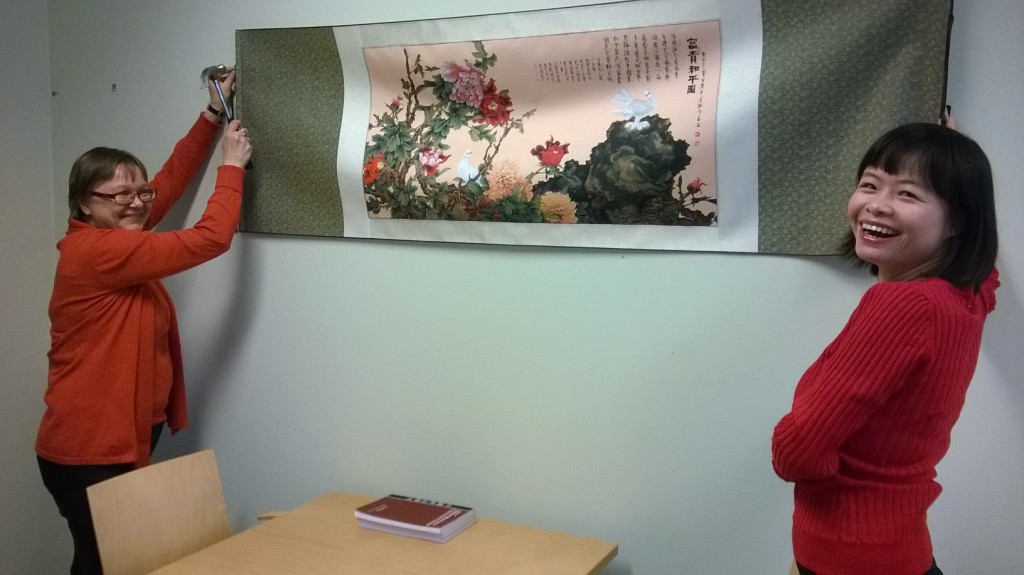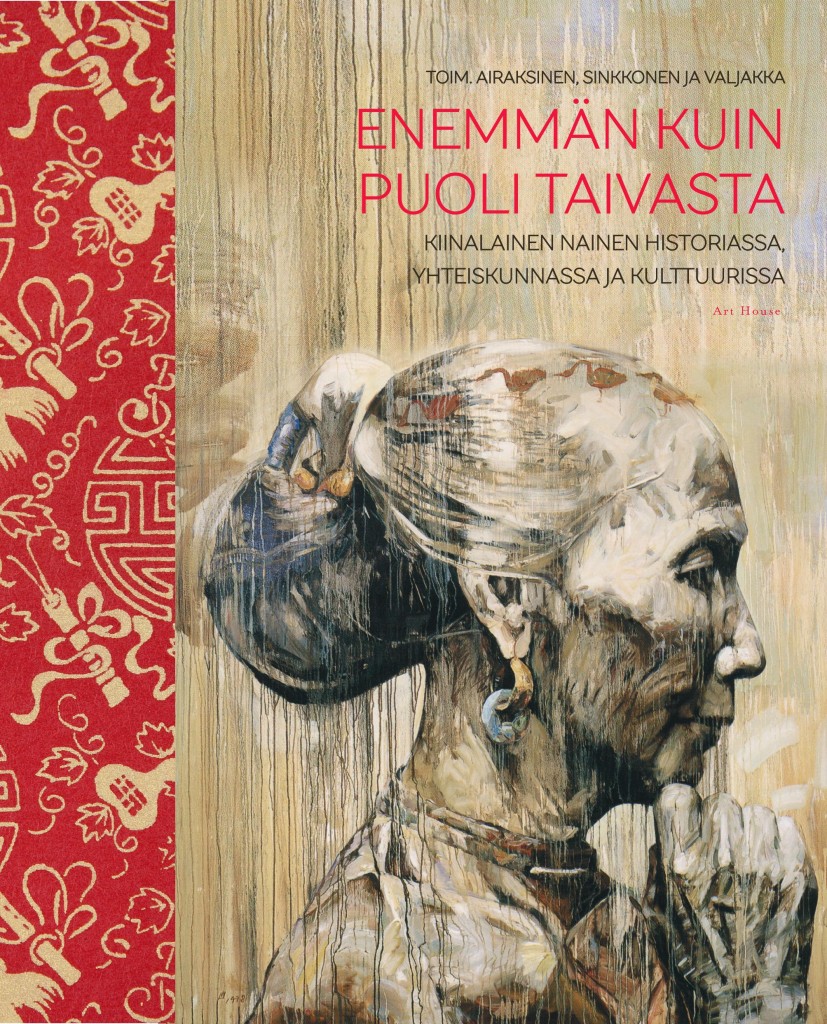
My colleague, Tiina Airaksinen took the above picture of two independent and hard-working women of the University of Helsinki. They waited desparately for days for a hero to appear to help put up this painting in my brand new empty office.
No one came and we decided to do everything on our own.
Ever since I arrived, I have heard men and women saying to me how dominant women are in the Finnish society. A few days ago, I was talking to a journalist about gender inequality in Asia. He then said to me: it is interesting to hear what you said. In Finland, it is the opposite!
He is not the only person to suggest to me that women, rather than men rule in the Finnish society. (For a moment, I was rejoiced with tears and thought that God has finally put me in the only RIGHT place on the face of the earth.)
Tiina Airaksinen has a new edited book coming out. Check the information below! The title apparently is inspired by Mao Zedong’s famous quote that women can hold half of the sky (妇女能顶半边天) in a socialist China where there is gender equality. Coming from a society where women actually hold MORE than half of the sky, our Finnish editors seek to understand how strong and capable women of China look at the world.

More Than Half the Sky? Chinese Women in History, Society and Culture
[in Finnish]
Tiina Airaksinen, Elina Sinkkonen and Minna Valjakka eds.
Iron girls and model workers, women of Falun Gong, Shanghai daughters, Tibetan nuns, female taikonauts, revolutionaries of imperial period and one-child mothers of People’s Republic of China – how does the world look like in the Chinese women’s eyes?
This book analyses Chinese female activities and agency concentrating on their change in the Chinese socio-political and cultural context. It is important to recognize that female agency is dependent on women’s societal status: what kind of roles are accepted for women, what kind of moral principles apply on women and how women themselves question and modify these societal ramifications. In China, the influence of factors such as traditional Chinese ideologies, views of the Communist Party, Western role models and women’s own personal views and intentions, make the question of changes in contemporary Chinese female agency intriguing.
Publisher: Art House, publishing date 7.3.2016.
For more information: Tiina Airaksinen (tiina.h.airaksinen(at)helsinki.fi), Elina Sinkkonen (elina.sinkkonen(at)fiia.fi) and Minna Valjakka (minna.valjakka(at)helsinki.fi)